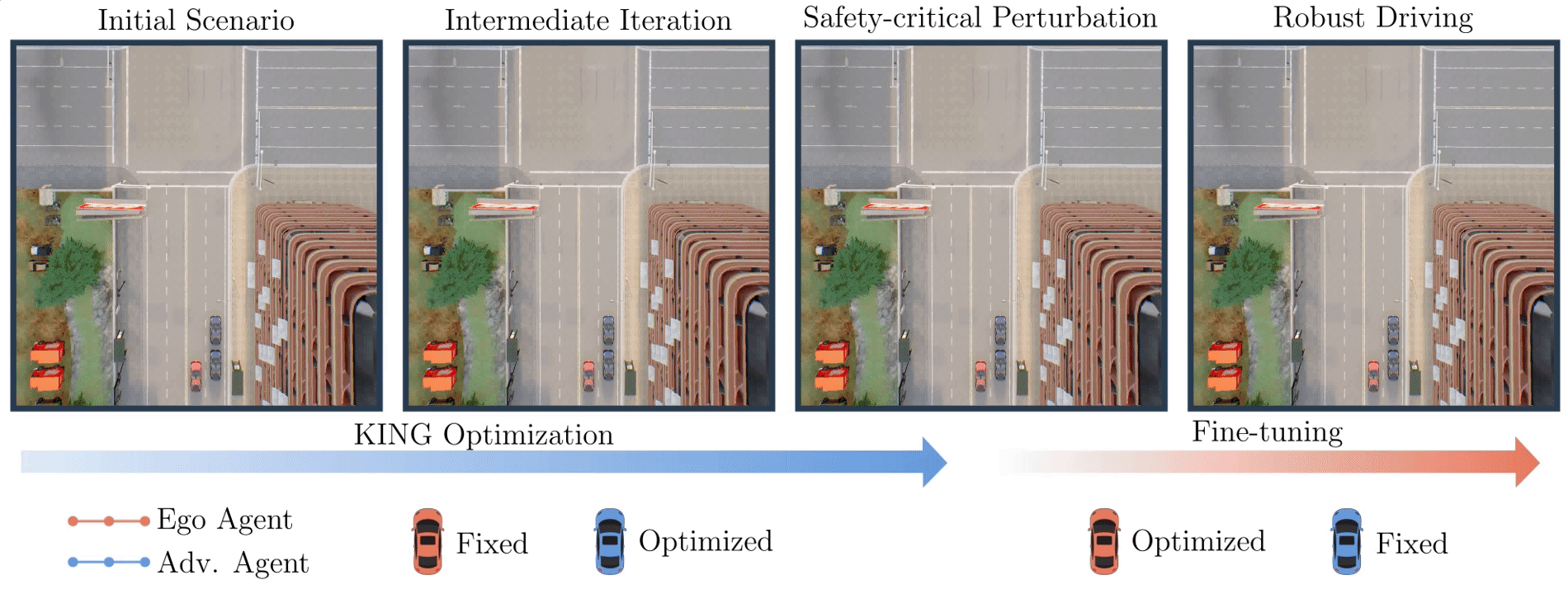Simulators offer the possibility of safe, low-cost development
of self-driving systems. However, current driving simulators
exhibit naïve behavior models for background traffic.
Hand-tuned scenarios are typically added during simulation to
induce safety-critical situations. An alternative approach is to
adversarially perturb the background traffic trajectories. In
this paper, we study this approach to safety-critical driving
scenario generation using the CARLA simulator. We use a kinematic
bicycle model as a proxy to the simulator's true dynamics and
observe that gradients through this proxy model are sufficient
for optimizing the background traffic trajectories. Based on
this finding, we propose KING, which generates safety-critical
driving scenarios with a 20% higher success rate than black-box
optimization. By solving the scenarios generated by KING using
a privileged rule-based expert algorithm, we obtain training
data for an imitation learning policy. After fine-tuning on
this new data, we show that the policy becomes better at
avoiding collisions. Importantly, our generated data leads to
reduced collisions on both held-out scenarios generated via
KING as well as traditional hand-crafted scenarios,
demonstrating improved robustness.
This work was supported by the German Federal Ministry for
Economic Affairs and Climate Action within the project KI
Delta Learning (project numbers: 19A19013A, 19A19013O), the
German Federal Ministry of Education and Research
(Tübingen AI Center, FKZ: 01IS18039A, 01IS18039B) and the
German Research Foundation (SFB 1233, Robust Vision:
Inference Principles and Neural Mechanisms, TP 17, project
number: 276693517). We thank the International Max Planck
Research School for Intelligent Systems (IMPRS-IS) for
supporting Katrin Renz and Kashyap Chitta. The authors also
thank Aditya Prakash and Bernhard Jaeger for proofreading.
The template for this website was borrowed and adapted from
Despoina Paschalidou.
Favicon created by Freepik - Flaticon.
